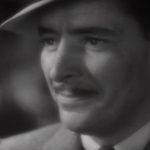 |
 |
 |
| Jim Ronald Colman |
Clemency Kay Francis |
Doris Phyllis Barry |
| Released by Sam Goldwyn | Directed by King Vidor Run time: 78 minutes |
||
Proof That It’s a Pre-Code Film
- Everyone rides Jim for not having an affair until he does.
- Clemency’s younger sister has a habit of falling for Lotharios; she’s whisked off to Venice because she’s “too young to have a scandal.”
- “Call no woman respectable until she’s dead!”
- Doris has a history with men that becomes a crucial point later on.
Cynara: I Hate Everyone
“This sex business is just so much nonsense.”
There’s something to be said for emotional complexity in pre-Code Hollywood. There are films that are nuanced, thoughtful takes on relationships between men and women and the way sex interplays between long term love. There are some excellent films that really explore what happens between people who love each other when sex throws things ajar. Sadly, for all its lofty pedigree, Cynara falls short in its examinations of love affairs, turning in a paltry romance with stiff lipped nobility and empty hearts.
Ronald Colman plays noted barrister Jim Warlock, whose main flaw, everyone seems to agree, is that he’s boring as hell. He deeply loves his wife, Clemency (Francis), and he does his job with an air of dignity. But his friend John Tring (Henry Stephenson) can’t bear it; he thinks Jim needs to get out there and get a mistress. It’s fun, donchaknow. When Clemency leaves for Venice for a month, Tring pushes Jim towards Doris, a lower class girl who sees Jim as her ticket to security and love. Jim succumbs in spite himself, and soon he’s stuck in an impossible situation: there’s the wife whom he treasures and the mistress he feels innately protective of. Can he satisfy his own noble leanings and make things right for both women?
Nah. Things aren’t that easy. Cynara reads like the worst case scenario to an affair, an empathetic Fatal Attraction where Glenn Close has too much dignity to spare. Though that may be underselling it; most of Cynara, I was yelling at the screen something along the lines of, “No, don’t go into that affair, Ronald Colman! You’re not ready for the emotional weighttttt”
There are subtleties to the movie I admire. It doesn’t paint anyone as wholly evil. It’s a marriage built on love, and remains so. Doris makes the mistake of having hope and pinning it all on an impossible dream. Even Tring, who is clearly an emotional adolescent, swoops in in the final act to try and unearth a happy ending. Even when he pretty much just deserves a swift punch in the face.
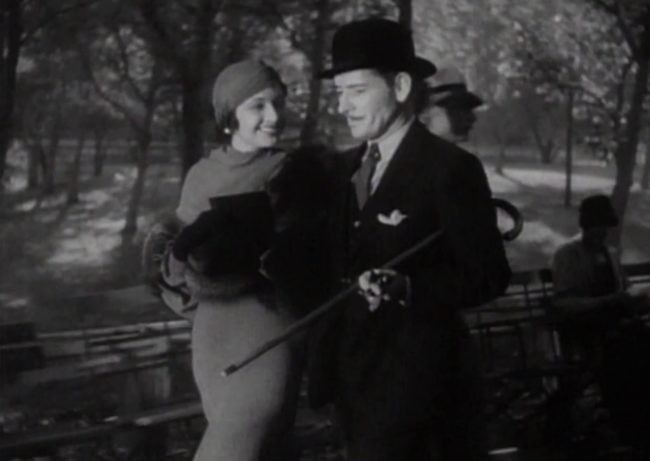
“You see, Kay, we were just put in two shite movies together. Saying ‘shite’ instead of ‘shit’ makes my comment fancy!”
While all of these characterizations are fine, it’s hard to emotionally connect with the premise. The movie tries to give infidelity its fair shake– it opens Jim’s eyes to real passion beyond the marrying kind– but it’s not cosmopolitan; it’s suffocating. It’s a lesson in conformity. The affair destroys kills a woman from heartbreak and the audience is supposed to console itself with a mushy mouthed romantic idea that it was a net positive in making Jim into ‘a better man’. Fuck that noise.
Cynara delivers a sanctimonious pity party in the guise of urbane wit. It’s a wholly depressing film that eschews humanity for drama and tears for life. Rather than risk comlexity or righteous anger at the ways of the world, Cyanara stacks the deck for yet another subdued celebration of old fashioned values. Phooey.
Screencap Gallery
Click to enlarge and browse. Please feel free to reuse with credit!
Other Reviews, Trivia, and Links
- The title comes from a poem called “Non Sum Qualis Eram Bonae sub Regno Cynarae” written by Ernest Dowson. It’s the third poem from the top here. Fun fact: the same poem contains the phrase “gone with the wind” which would inspire, well, I’m sure you know.
- The article on TCMDB tells the dual stories of Kay Francis and Ronald Colman as their stars rise and what happened to both after the film was made. The movie itself does have a good pedigree, as they explain:
Like all of Samuel Goldwyn’s independent productions, Cynara was marked by the usual Goldwyn “tradition of quality,” with top-notch talent both in front of and behind the camera. Frances Marion had written more than half a dozen silent films for Goldwyn; Cynara was her final film for him. It was the second of director King Vidor’s four films with Goldwyn. Based on a play, Cynara could have been as static and dialogue-heavy as many early talkies were, but the master stylist of such silent classics as The Big Parade (1925) and The Crowd (1928) found ways to give the film visual interest as well. In one scene, Colman tears up a piece of paper and throws the pieces out a window, where they fly into the air. Vidor cuts to St. Mark’s Square in Venice (where Francis is vacationing), with pigeons flying into the air. Vidor called such moments “pure cinema.”
- Mordaunt Hall in the New York Times drools over this one:
King Vidor, the director, gives to his scenes effective and restrained guidance, with the result that the incidents move along at a pleasing pace. The leading feminine characters are impersonated by Kay Francis and Phyllis Barry, who do their share to make this tragic tale quite convincing.
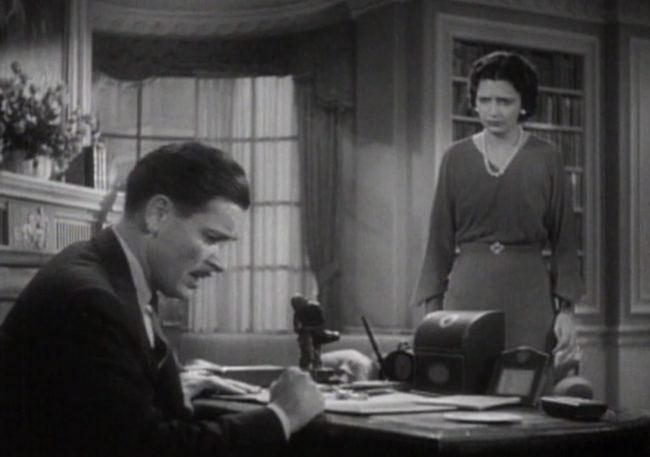
The film’s best moment undoubtedly comes when Warlock learns of his mistress’s fate– in front of his wife– and has to carefully calibrate his devastated response.
- Kay Francis Films has a ton of advertisements for the movie and a pretty good review:
Limited in camera time, though not totally overshadowed by a stellar cast and story, is Kay Francis as Clemency. She doesn’t have much to do but wear some nice costumes and make strange facial gestures. But catch a glimpse of her face when the police officer arrives at the Warlock residence when the movie is ending. She’s got one noticeably scowling look on her face. It’s a look that stays embedded in one’s mind.
- Variety gives this one a mildly positive review.
Treatment leans heavily to the British ideal of maintaining a calm and mannered surface that only sharpens the suggestion of emotional tumult beneath.
- Cinemaven relishes this one, noting its pedigree:
“Cynara” was based on a novel that was based on a play, but to classic film lovers, the more important writing credit was that the screenplay was by Frances Marion, the great pioneering woman scenarist, in collaboration with the lesser-known Lynn Starling. The film was directed by King Vidor and has music by Alfred Newman, with the Irving Berlin song “Blue Skies” thrown in. It came out of Sam Goldwyn’s production company, as he had Colman under contract at the time.
Awards, Accolades & Availability
- This film is currently in the ether. It plays on TCM once or twice a year.
More Pre-Code to Explore




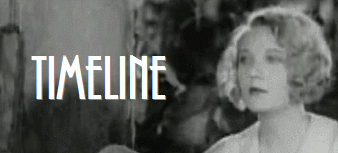


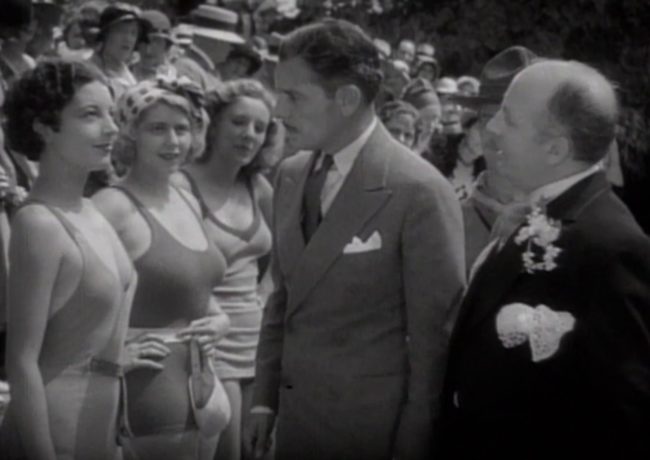





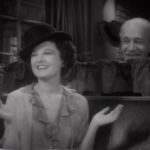


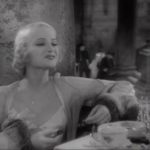



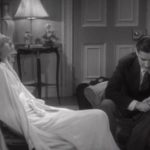






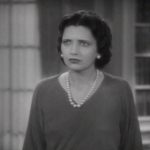
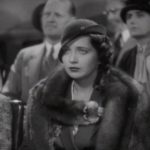
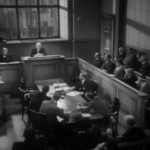
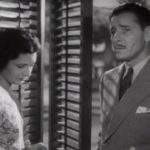
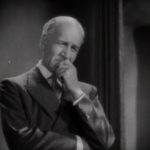
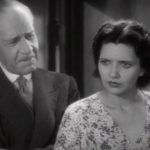
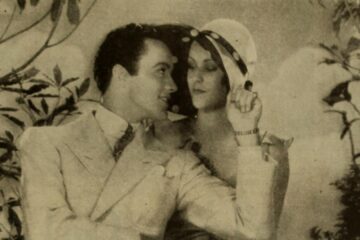


6 Comments
Linda Sandahl · July 24, 2017 at 1:48 am
I thought it was pretty drippy. And poor Kay has to do so many scenes sitting down or standing on the stairs or something because she was taller than Ronnie.
One thing thati did strike me about this film, however, was how clear it was that Clemency was puzzled and taken aback when Jim did not immediately want to go to bed with her as soon as she returned from her silly trip with her silly sister. It wasn’t censorable,since no words or gestures made this plain; but nevertheless it was quite obvious and an important emoional point, telling you a lot about their marriage before the separation.
The problem with this one, it seems to me, is that the material is just too flimsy.
Kia Julian · July 24, 2017 at 9:00 am
LOVE This post! I also noticed Clemency’s subtle reaction to her husband’s not wanting to sleep with her upon her return from that ridiculous trip she shouldn’t have gone on in the first place. This movie simply just makes you want to slap it so many times on so many diffrrent levels! Lol!
arlissarchives · July 24, 2017 at 8:03 am
CYNARA can be compared, to its detriment, to another 1930s extra-marital film by Goldwyn, DODSWORTH (1936). Made under the Production Code, DODSWORTH manages to do what the Pre-Code CYNARA didn’t – follow the emotional roller coaster of the characters. Where CYNARA discreetly turns its head away and avoids showing us the emotional reactions of the characters, DODSWORTH relentlessly keeps the camera rolling on them. Career-wise, CYNARA is important because Colman was opposed to making it but was persuaded apparently to expand his acting chops. When the film failed to be popular, he stuck to the tried-and-true ultimately turning down the lead in REBECCA (1940),perhaps the biggest mistake in Colman’s career.
Linda Sandahl · July 24, 2017 at 9:36 am
I certainly agree that Dodsworth is vastly superior; but not about Rebecca. Because, let’s face it, Maxim is sort of a drip, too. And only when the second Mrs. De Winter realizes how overwhelmed he is can she grow up herself. I don’t think Colman would nave been good as Maxim at all; his characters were much more alert to other people’s feelings than Maxim ever was.
Also I don’t think you can term such performances as The Light That Failed, If I Were King, Lost Horizon, Arrowsmith, A Tale of Two Cities, The Prisoner of Zenda, The Talk of the Town, or Random Harvest tried and true.I don’t believe there’s another actor who could have done all of them.
arlissarchives · July 24, 2017 at 2:14 pm
I’m referring to the box office success of these films. Colman was pretty much Colman in all them, the idealist, even drunken Sydney Carton was an idealist. Colman did play Maxim de Winter in a radio adaptation in 1941 (with Ida Lupino) and I thought he did well.
Cazbar Pintar · July 26, 2017 at 11:00 pm
Yes this film was such a disappointment, as I’m liable to get overexcited whenever I see that a Ronald Colman picture is going to be on the telly, but this wasn’t what I was expecting. There’s no need to make Kay Francis so dull. A wasted opportunity.
Comments are closed.